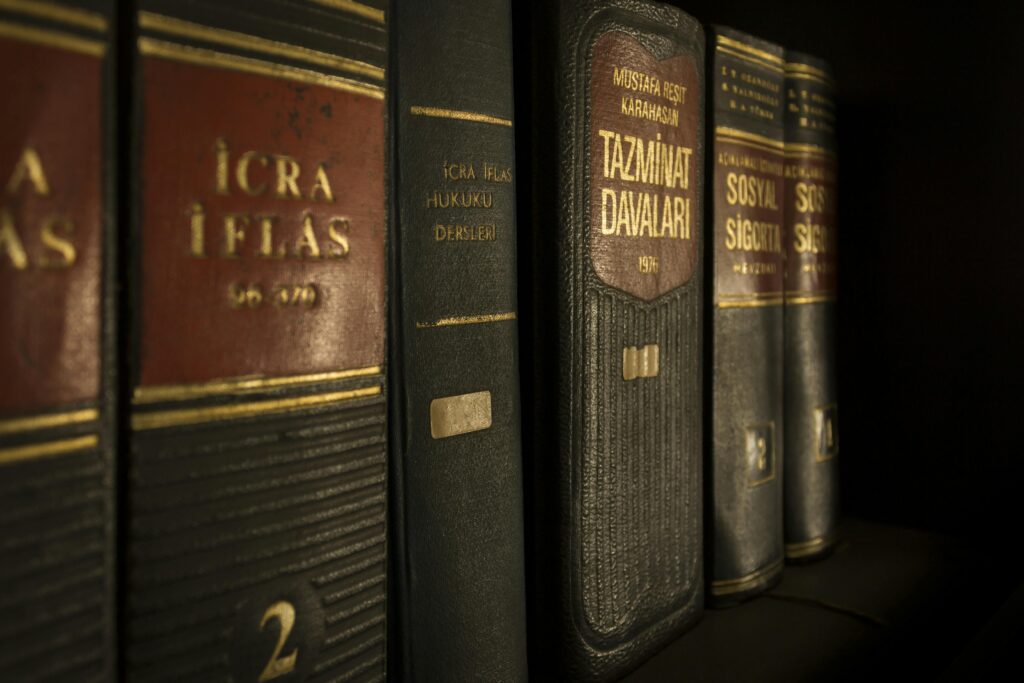Published On: September 27th 2025
Authored By: Ankit Narendra Kumar Saxena
Nari Gursahani Law College
Abstract
Article 21 of the Indian Constitution guarantees the right to life and personal liberty to each and every person in the country. Custodial violence not only takes away the fundamental right to life but also viciously violates human dignity. Unfortunately, the existing laws in India do not adequately address custodial crime.
India is a signatory to the United Nations Convention Against Torture and Other Cruel, Inhuman and Degrading Treatment or Punishment since October 14, 1997. However, India is yet to ratify the same. Therefore, enabling legislation against torture is necessary for the ratification of the convention.
Legislation against custodial torture in consonance with the definition of torture provided under the convention and related Indian legal provisions will ensure a right against custodial torture for all persons in India.
The Supreme Court in the D.K. Basu v. State of West Bengal (1997) case held that the expression “Life or Personal Liberty” in Article 21 of the Indian Constitution includes a guarantee against torture and assault even by the state and its functionaries to a person who is taken into custody. The Law Commission of India has also recommended ratification of the United Nations Convention Against Torture and tougher laws for custodial torture.
In 2010, the Lok Sabha passed the Prevention of Torture Bill, 2010, which subsequently lapsed in the Rajya Sabha. However, the Select Committee of the Rajya Sabha in its report on the 2010 bill flagged certain gaps in the bill and suggested stricter provisions to prevent custodial torture. Taking cues from the committee report, recent legislative efforts have focused on criminalizing custodial torture, death, and sexual abuse, and prescribing punishments for these offences. In addition to this, proposed bills also provide a legal framework for compensation, rehabilitation, and protection of the victims of custodial violence.
Legal Safeguards
Building upon previous legislative attempts, recent efforts have focused on creating comprehensive frameworks for preventing custodial torture inflicted by public servants. Such legislation aims to provide prevention, punishment, and compensation for custodial crimes, rehabilitation of victims, and protection of victims, complainants, and witnesses.
Custodial torture is not limited only to physical or mental suffering. It also involves food deprivation, submersion of head in water, asphyxiation, use of psychoactive drugs, maltreating family members, and inflicting shame upon the victim. The burden of proof regarding whether custodial torture was intentional lies with the public servant—that is, the public servant must prove that such torture did not occur or was not intentional.
Under proposed legislative frameworks, public servants or any person acting with the consent or acquiescence of such public servants would face imprisonment for a term of not less than three years, which can be extended to ten years, and may also be liable to a fine of not less than ₹1,00,000 for custodial torture.
Proposed legislation also provides for compensation to victims of custodial torture. The amount awarded as compensation to the victim includes interim compensation and rehabilitation as decided by the appropriate government. The compensation is determined based on the gravity of the physical and mental harm and suffering inflicted, including death if caused as a result of custodial torture.
Several forms of relief for victims of custodial torture include employment assistance, education, psychological and sociological benefits, legal and expert assistance, medicine, and medical services. These reliefs can also be determined based on the age, family responsibility, and material condition of the dependents of the victim.
Legislative proposals also address sexual abuse in custody, prescribing rigorous imprisonment for either a defined term of not less than ten years extending to life imprisonment and with fine for public servants or any person who, with consent or acquiescence of a public servant, sexually abuses a detained person in custody, administrative detention, or imprisonment as a result of conviction for an offense. Victims or their family dependents must address cognizance of the offense within two years of the commission of the alleged custodial torture.
State governments would be bound and responsible to make arrangements for the protection of victims of custodial torture and custodial sexual abuse, and for complainants and witnesses from all kinds of ill-treatment, violence, threats of violence, physical harm, and mental trauma when addressing and submitting complaints until such time when the appropriate government is satisfied that no such protection is required anymore.
Constitutional Provisions
Several constitutional provisions ensure accountability and protect individuals in police custody:
- Article 20(1) of the Constitution of India prohibits the conviction of a person for an offense that was not an offense under the law at the time of its commission, thereby preventing authorities from imposing retroactive penalties.
- Article 20(2) prevents individuals from double jeopardy—the same person cannot be prosecuted and punished multiple times for the same offense.
- Article 20(3) prevents individuals from being compelled by authorities to be witnesses against themselves, thereby preventing self-incrimination.
- Article 22 of the Indian Constitution guarantees that authorities must inform an individual of the reasons for their arrest and allow them access to legal representation. This also involves producing the arrested individual before a magistrate within 24 hours, excluding travel time.
Statutory Protections
- Sections 41A, 41B, 41C, and 41D of the Code of Criminal Procedure, 1973 grant the right to be informed of reasonable grounds for arrest and detention, to inform family members and friends about the arrest, and to access legal representation for the arrested person.
- Section 163 of the Code of Criminal Procedure prohibits authorities from using inducements, threats, or promises by investigating officers.
- Section 49 of CrPC, 1973 restricts authorities from using force beyond what is necessary to prevent escape.
- Section 164(4) directs the recording of confessions before a magistrate who will confirm the same.
- Section 25 of the Indian Evidence Act, 1872 prohibits confessions made to police officers from being used as evidence.
- Section 29 of the Police Act, 1861 empowers police authorities to impose penalties, fines, and imprisonment on individuals but prohibits them from inflicting violence on individuals in custody.
Judicial Responses
Several landmark cases demonstrate the judiciary’s response to custodial torture. Some of the most significant cases addressing custodial torture include:
- K. Basu v. State of West Bengal (1997)
- Nilabati Behera v. State of Orissa (1993)
- Rudul Shah v. State of Bihar (1983)
D.K. Basu v. State of West Bengal (1997)
This case highlights custodial violence and police officials’ brutality and inhuman treatment of individuals in detention and imprisonment. Through this case, the Supreme Court observed and issued several guidelines to protect the rights of arrested individuals. The Court mandated the wearing of name tags with designation by police officials and directed the generation of an arrest memo signed by the arrestee and a family member or respectable person of the locality. The arrested person can inform family, friends, relatives, or legal advisors about the arrest. The arrestee must undergo medical examination for assessment of major and minor injuries, which must be recorded at the time of arrest and signed by both the arrestee and the police officer. The arrestee can meet with their lawyer during interrogation and can claim bail if there is proper guarantee and bail papers along with the required fee submitted.
Nilabati Behera v. State of Orissa (1993)
Suman Behera, the petitioner’s son, was arrested by police and was found dead on railway tracks with multiple injuries the next day. The police claimed that he escaped from police custody. The question arose whether the victim had suffered injuries due to custodial violence and whether the police were liable for his death. The Supreme Court determined that injuries were inflicted while the victim was in police custody—that is, he was a victim of custodial violence. Compensation of ₹1,50,000 was awarded to his family, holding that the state government was responsible for the lack of rehabilitation and assistance to the victim.
Rudul Shah v. State of Bihar (1983)
Rudul Shah was detained in prison for over 14 years after his acquittal. A writ of habeas corpus was filed for his immediate release and seeking compensation. The issue involved whether such detention was justified and whether compensation should be awarded. The Supreme Court ruled that the detention was unjustified and constituted a violation of his fundamental right to life and liberty. Compensation of ₹35,000 was awarded to the petitioner, with the state government being held responsible for the violation of his individual rights.
Conclusion
The issue of custodial violence in India remains a significant challenge to the constitutional guarantee of life and personal liberty under Article 21. While existing constitutional and statutory provisions provide a framework for protection, the lack of comprehensive anti-torture legislation continues to be a gap in India’s legal system. The judicial responses, particularly in landmark cases like D.K. Basu, Nilabati Behera, and Rudul Shah, have established important precedents for protecting individuals in custody and providing compensation for violations. However, the need for stronger legislative measures, including the ratification of international conventions and the enactment of comprehensive anti-torture laws, remains critical for ensuring effective prevention and redressal of custodial violence.
References
- The Constitution of India, 1950
- Code of Criminal Procedure, 1973
- Indian Evidence Act, 1872
- The Police Act, 1861
- D.K. Basu v. State of West Bengal, (1997) 1 SCC 416
- Nilabati Behera v. State of Orissa, AIR 1993 SC 1960
- Rudul Shah v. State of Bihar, (1983) 4 SCC 141
- Aishwarya Agrawal, ‘Custodial Violence,’ February 9, 2024, available at www.lawbhoomi.com




